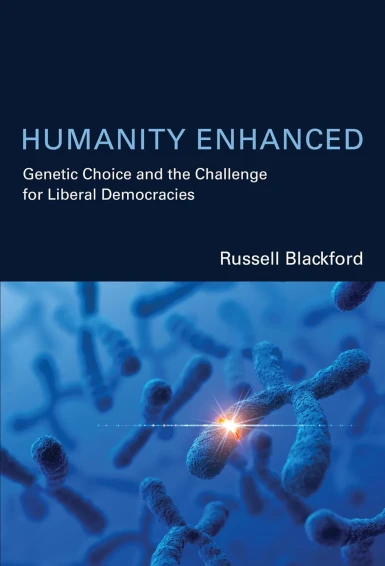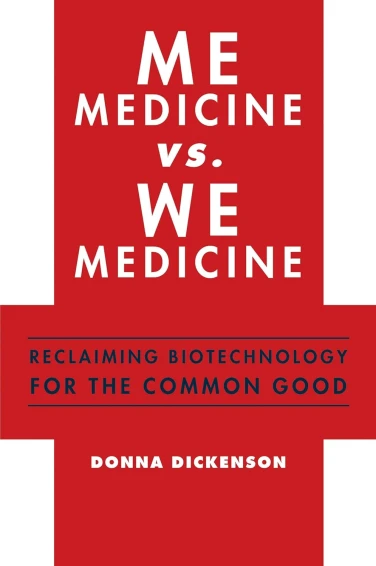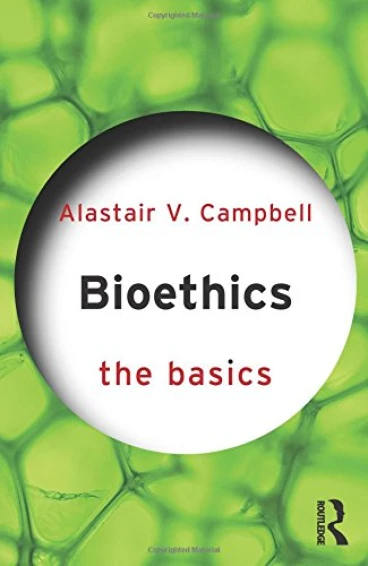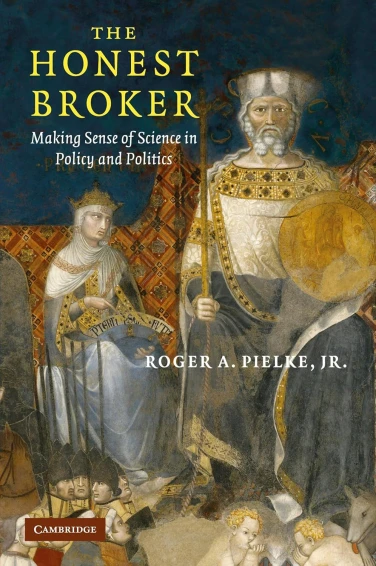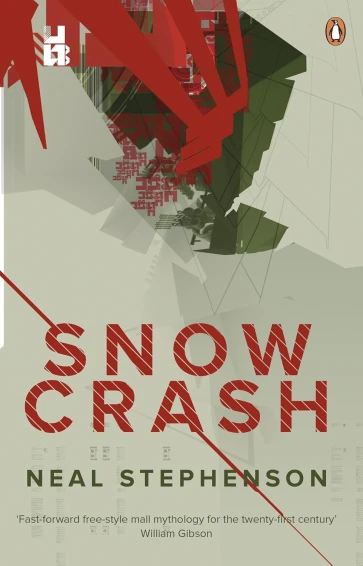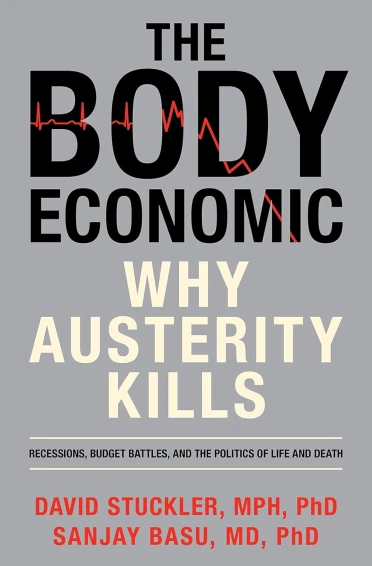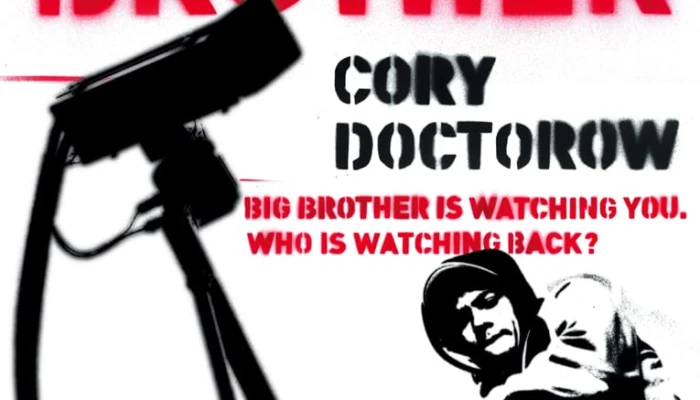
By Cory Doctorow
ISBN 978-0-00-728842-7
RRP: £7.99
Ever since hearing Cory Doctorow speak at the 2007 Royal Society of Arts conference ‘Ethical Futures’ in London, I have been keen to take time out to read some of his work. Described as a science fiction author, activist, journalist and blogger he is most well known as an activist in favour of liberalising copyright laws and promoting the rights of the people in the digital world. His latest book, Little Brother arrived on the book shelves last year with near instant praise and success. The book debuted at No. 9 on the New York Times Bestseller List and went on to win a succession of awards including the 2009 White Pine Award, 2009 Prometheus Award and is a finalist for the Hugh Award for best science fiction or fantasy novel, the results of which are to be announced imminently.
Well, was it worth the wait? I think it was. Little Brother is a fast paced, well crafted and engaging read on matters to do with technology and the abuse of power. Surprisingly having read the novel I now realise that some publishers and reviewers have classified the book as a young adult book. Whilst the book would certainly appeal to this age range it is by no means a stretch for those outside this demographic to ‘stoop down’ and read it. It is a book which spans the ages and should not be too rigidly classified.
With a name such as Little Brother it is perhaps no surprise that parallels are made between the book and ‘Big Brother’ in George Orwell’s 1984. Another subtle and fun connection with Orwell (which may be lost on those who have not read 1984) is the alternative name of the lead character, Marcus. Throughout Little Brother Marcus uses the handle "w1n5t0n" (“Winston”), a reference to the main character in Orwell’s novel. Whilst I would certainly recommend Little Brother to others to read it is probably not destined to achieve the same status as Orwell’s epic and seminal novel. Nevertheless, Doctorow has helpfully reframed many of the same issues Orwell addresses into an alternative narrative and context for 21st century society. Developing the play on kinship terminology which already exists between the two books, Little Brother is be no means a clone of 1984 but could be easily said to be a respectable cousin.
Plot
The story is set a number of years into the future. The precise date and time is not clear and is perhaps a helpful and subtle ploy by the author to avoid the book becoming too dated. As a marker, mention is made throughout the book of the fourth version of the Xbox console.
The two central themes of the book could be defined as the use of technology and the abuse of power. Doctorow is clearly well versed and familiar with the latest developments in technology and weaves this insight and understanding carefully and unobtrusively into the narrative. It neither disrupts the flow of the plot nor does it seem like an ongoing commentary running line alongside the story.
The central character is a young guy by the name of Marcus. Very much indicative of his generation’s fascination and interest with ARG-ing (alternate reality gaming), Marcus and his friends bunk off school to take part in a treasure hunt in the Bay Bridge area of San Francisco. They abruptly find themselves caught up in what they believe to be an earthquake and in the panic which emerges they find themselves picked up by the Department for Homeland Security (DHS). The earthquake is not an earthquake but rather a terrorist attack on the bridge which has killed thousands. Marcus and his friends find themselves as prime suspects for the attack. They are imprisoned, tortured and finally released. Bewildered, broken, mad, confused, suspicious Marcus comes away from his detainment by the DHS with a greater understanding of how his every move is being watched via the all-seeing eyes of the DHS. His interest and knowledge of technology leads him to rebel against the growing trend of pervasive surveillance imposed on the city, with the ultimate aim of bringing down the DHS.
The book is gripping and exciting and is highly recommended as a summer read. The author sets the pace just right without too much happening all at once but with just enough action to keep you in suspense and wondering as to what will happen next. The one major disappointment is the ending which (without giving too much away) jars too much with the rest of the book. As a reader you anticipate a big build up to a climax that reflects the uncertainty and intrigue which under girds the rest of the story. What transpires is an anti-climax which leaves you feel robbed of a more robust and fitting end. I would not claim to have studied the intricacies of US security operations but given the function and role of the DHS as described in the book it seemed strange to have state troopers turn up to be the heroes of the day! In many respects it would have felt more natural for the book to end unresolved as opposed to tying up all the loose ends as neatly as it does.
Aside from being simply being a work of fiction to enjoy, Little Brother provides an ideal book to naturally share with friends to then discuss the issues and questions the book raises. Having read it you cannot help be led to consider afresh the impact of technology on society and the implications this can have on privacy and surveillance. I guarantee that you will not walk past a CCTV camera again without considering the real reason for it being there.
Admittedly, at points Doctorow’s activist streak may emerge a little too heavily resulting in arguments becoming a little one-sided. Living in a post-9/11 and post-7/7 world surely not all anti-terror measures are primarily concerned with controlling the population. Nevertheless what the author does is help to bring into sharp focus whether under this guise of ‘anti-terrorist measures’ other more sinister and draconian measures are slowly being introduced.
Bioethics meets privacy and surveillance
Increasingly there is a growing sense that the term ‘bioethics’ may not be that helpful in helping to frame and engage as wide a range of voices in discussions on the many questions which are emerging as the biotech century continues to unfold. Admittedly, the terms 'bioethics 1' (concerned with clinical ethics with its dilemmas grouped around the sanctity of life) and 'bioethics 2' (with its focus on the new manipulative powers of biotechnology and the emerging technologies) have been coined to help try and bring some kind of distinction. Questions of privacy and surveillance can therefore be regard as arising from the impact these technologies are having upon humanity.
Privacy can be understood to be a measure of our freedom. Consequently when that privacy begins to be eroded, the impact and influence of external forces becomes that more apparent. To live in a democratic society surveillance surely needs to play a role in order that genuine crimes (such as terrorist attacks) can be detected and punished. Therefore, within this context a degree of our privacy will need to be compromised for this to take place. For the most part most people are willing for this to take place.
What begins to ring alarm bells particularly in the minds of people such as Doctorow is the relationship between this set of circumstances and the nature of government. By nature governments grow and evolve and when geographical limits are reached inevitably governmental control begins to consolidate and increase over the people it already covers. If privacy refers to the measure of our freedom then it is essential for us as humans to have healthy relationships in which we are able to exercise our right for privacy and are able to open up and be vulnerable with people of our own choosing. When this relating becomes controlled, tracked and determined by outside forces through whatever technological means, be it external or internal to the body (for example RFID technology within the body could become a very real possibility), then healthy relationships die.
Within this context the issues Doctorow brings to the attention of the reader in Little Brother are in need of serious consideration. We need to fully consider how this technology continues to impact upon us and what it means to be human today. A nexus of questions emerge touching on matters of ethics, privacy and surveillance and our rights as humans, both individually and through our relationships with one another.
In our welcoming of the many benefits new emerging and converging technologies present, it is important that we do not loose sight of the implications they have upon our humanity. If you are looking for an entertaining but thought provoking read this summer along these lines make sure you read Little Brother.




